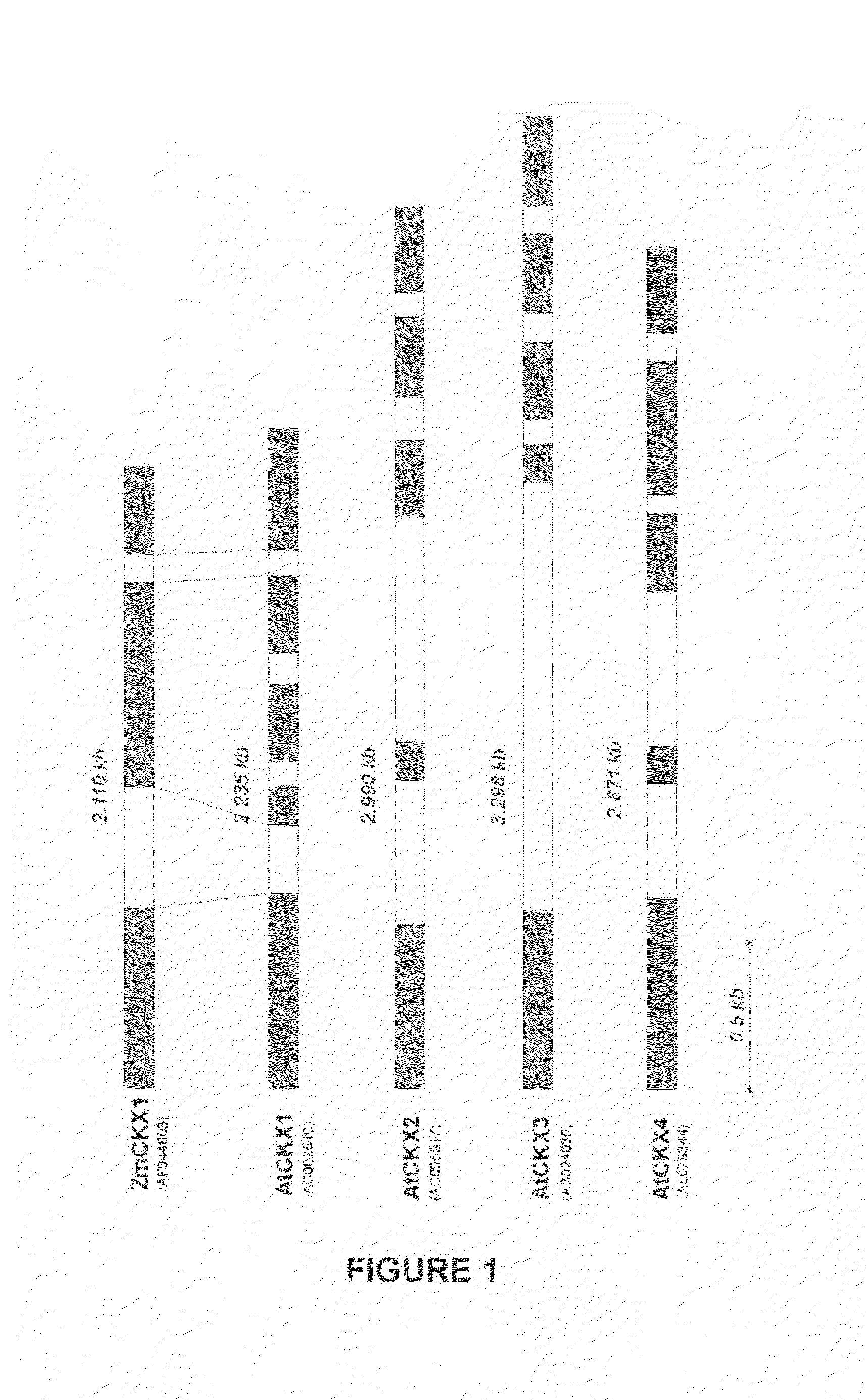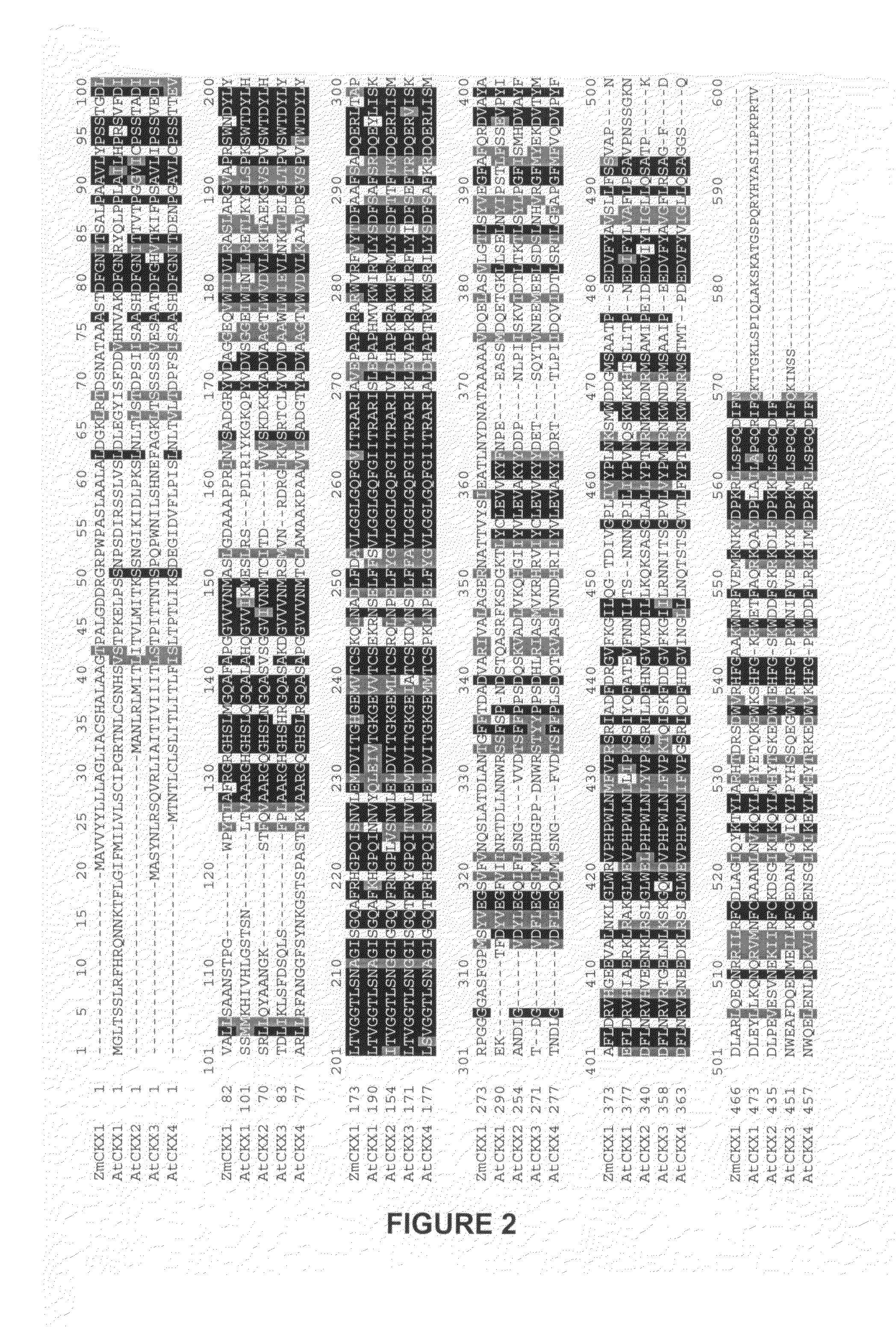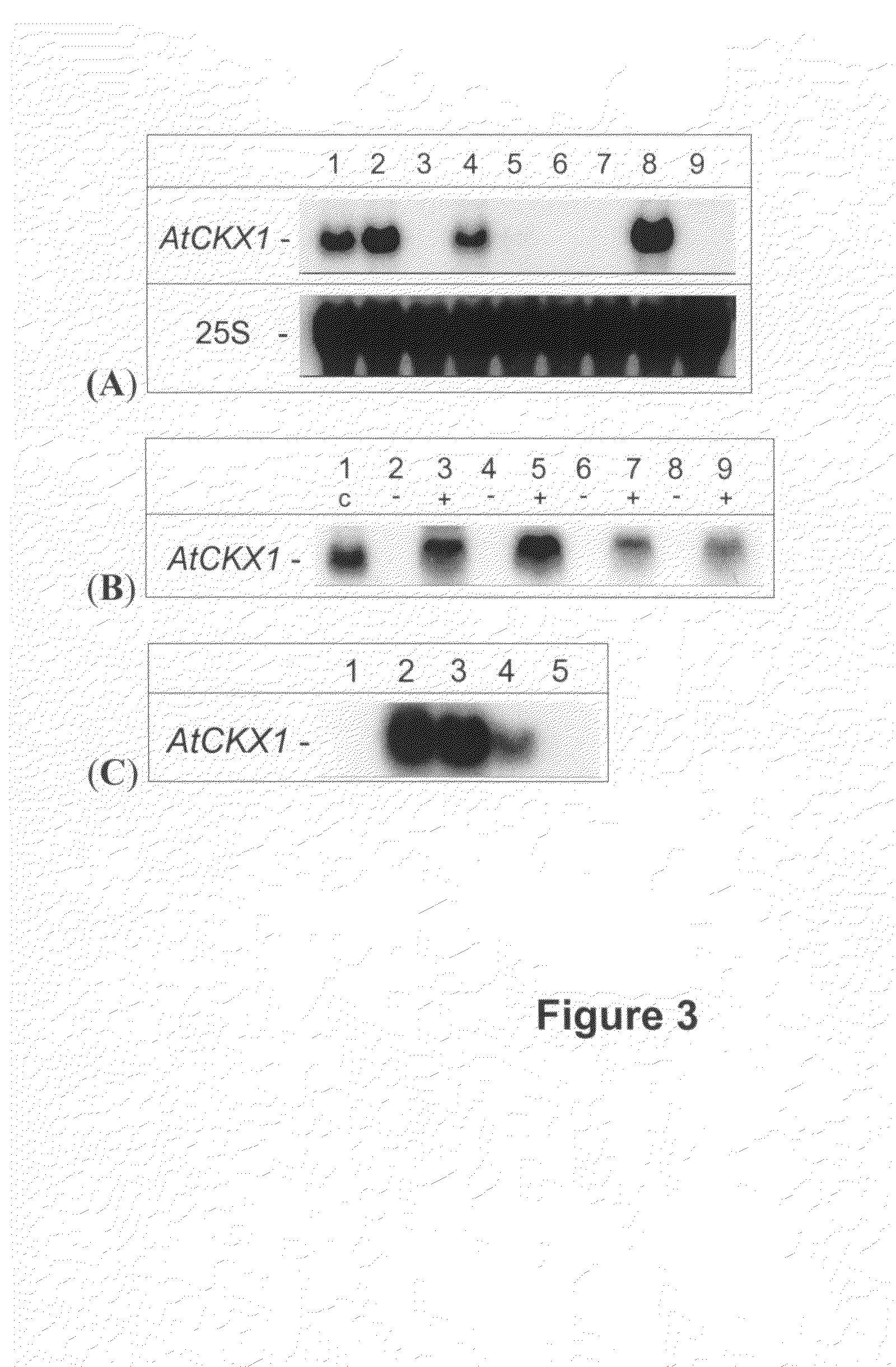Method for modifying plant morphology, biochemistry and physiology
a technology of morphology and biochemistry, applied in the field of methods, can solve the problems of inability to realize a breakthrough in biotechnology, questionable whether this would yield a commercial product with improved characteristics, and only fragmentary knowledge, and achieve the effect of reducing the level of active cytokinins
- Summary
- Abstract
- Description
- Claims
- Application Information
AI Technical Summary
Benefits of technology
Problems solved by technology
Method used
Image
Examples
example 1
Brief Description of the Sequences of the Invention
[0339]
SEQ ID NO:DESCRIPTION1AtCKX1 genomic2AtCKX1 protein3AtCKX2 genomic4AtCKX2 protein5AtCKX3 genomic6AtCKX3 protein7AtCKX4 genomic8AtCKX4 protein9AtCKX5 genomic (short version)10AtCKX5 protein (short version)11AtCKX6 genomic12AtCKX6 protein135′primer AtCKX1143′primer AtCKX1155′primer AtCKX2163′primer AtCKX2175′primer AtCKX3183′primer AtCKX3195′primer AtCKX4203′primer AtCKX4215′primer AtCKX5223′primer AtCKX5235′primer AtCKX6243′primer AtCKX625AtCKX1 cDNA26AtCKX2 cDNA27AtCKX3 cDNA28AtCKX4 cDNA29AtCKX5 cDNA (short version)30AtCKX6 cDNA31AtCKX2 cDNA fragment32AtCKX2 peptide fragment33AtCKX5 genomic (long version)34AtCKX5 cDNA (long version)35AtCKX5 protein (long version)36root clavata homolog promoter
example 2
Identification of Candidate Cytokinin Oxidase Encoding Genes from Arabidopsis thaliana
[0340]Six different genes were identified from Arabidopsis thaliana that bear sequence similarity to a cytokinin oxidase gene from maize (Morris et al., Biochem Biophys Res Comm 255:328–333, 1999; Houda-Herin et al. Plant J 17:615–626; WO 99 / 06571). These genes were found by screening 6-frame translations of nucleotide sequences from public genomic databases with the maize protein sequence, employing tblastn program. These sequences were designated as Arabidopsis thaliana cytokinin oxidase-like genes or AtCKX. They were arbitrarily numbered as AtCKX1 to AtCKX6. The below list summarizes the information on these genes. The predicted ORF borders and protein sequences are indicative, in order to illustrate by approximation the protein sequence divergence between the Arabidopsis and maize cytokinin oxidases, as well as amongst the different Arabidopsis cytokinin oxidases. The ORF borders and protein s...
example 3
Transgenic Plants Overexpressing AtCKX1 Showed Increased Cytokinin Oxidase Activity and Altered Plant Morphology
1. Description of the Cloning Process
[0423]The following primers were used to PCR amplify the AtCKX1 gene from Arabidopsis thaliana, accession Columbia (non-homologous sequences used for cloning are in lower case):[0424]Sequence of 5′ primer: cggtcgacATGGGATTGACCTCATCCTTACG (SEQ ID NO:13)[0425]Sequence of 3′ primer: gcgtcgacTTATACAGTTCTAGGTTTCGGCAGTAT (SEQ ID NO: 14)
[0426]A 2235-bp PCR fragment, amplified by these primers, was inserted in the Sal I site of pUC19. The insert was sequenced and confirmed that the PCR amplification product did not contain any mutations. The SalI / SalI fragment of this vector was subcloned in the SalI site downstream of a modified CaMV 35S promoter (carrying three tetracycline operator sequences) in the binary vector pBinHyg-Tx (Gatz et al., 1992). The resulting construct was introduced into tobacco and Arabidopsis thaliana through Agrobacterium...
PUM
| Property | Measurement | Unit |
|---|---|---|
| surface area | aaaaa | aaaaa |
| size | aaaaa | aaaaa |
| size | aaaaa | aaaaa |
Abstract
Description
Claims
Application Information
 Login to View More
Login to View More - R&D
- Intellectual Property
- Life Sciences
- Materials
- Tech Scout
- Unparalleled Data Quality
- Higher Quality Content
- 60% Fewer Hallucinations
Browse by: Latest US Patents, China's latest patents, Technical Efficacy Thesaurus, Application Domain, Technology Topic, Popular Technical Reports.
© 2025 PatSnap. All rights reserved.Legal|Privacy policy|Modern Slavery Act Transparency Statement|Sitemap|About US| Contact US: help@patsnap.com



